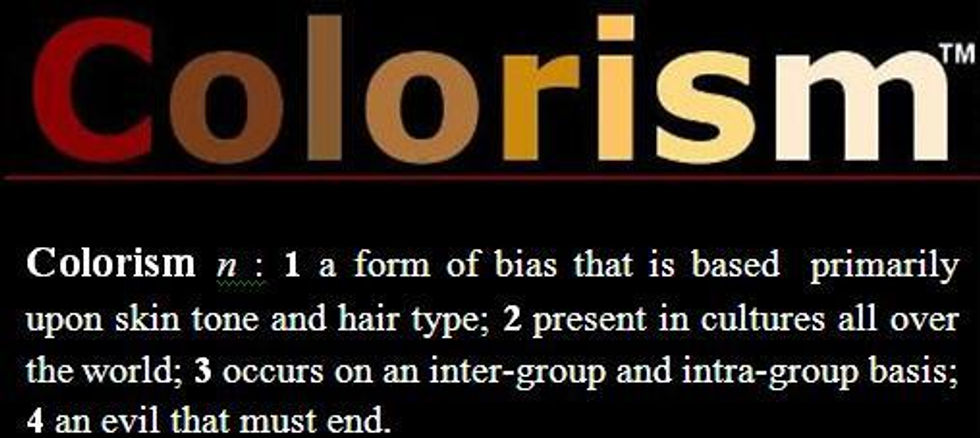What is it? Who does it effect? And How does it manifest itself today?
Similar to my experience with Microaggressions as I discussed in a previous article, my own experiences with colorism are met in a similar light.
First off colorism is defined as…
Similar to racism, it is a bias based on skin color, in this case, a specific shade of black. However it is important to note that colorism also includes hair type.
Colorism has driven the beauty standards in almost every continent across the world: here in North America, Asia, Africa and South America. To be whiter meant that you were closer to the European standards of beauty and less “uncolonized” or “dirty.” since white was deemed “pure.”
While I am not qualified to speak on the influence of colorism on the social constructs and cultures of these places, I can speak about my experiences and those I have heard from friends.
The first time I ever became aware that colorism even existed was the summer of my sophomore year when I attended the Harvard Summer Program. One of my roommates was from Nigeria and she told me one night of the pressure from her family to lighten her skin. Her mom kept her younger sister from playing sports outside, had her use lightening creams and had made her believe that lighter was better. So much so that her younger sister would carry her lightness as an advantage over her. Whenever there was a fight, her younger sister would respond, “At least I’m lighter than you…” My friend was led to hate her dark skin, believe that it was dirty. I had never realized how powerful colorism was. I wondered why I had never suffered from it. Another one of my friends, while she never flat out said it, would hint at how great it was to be light. They were subtle and never directly dissed darker skinned people, but the references were there.
When I returned from the program, I had come home with a new awareness of colorism but I felt it did not in any way affect me.
Then one day I was sitting with two friends, eating pizza and we were discussing social activism. And I can’t remember how we got here in the conversation but I remember one of my friends saying “Nicole you’re very pro-black but you’re light skin, you don’t really suffer the way dark skinned people do…” I never thought of this - that my light skin somehow contradicted my social activism. It raised the question for me as to what it meant to black followed by many other complex questions. I realized that from a colonialist standpoint, I have “better” characteristics because of my light skin tone and looser curl pattern. These are “better” characteristics because they are closer to the European standards of beauty. This translates into slavery when the lighter women worked in the house (the less tedious work) and the darker women would work in the fields. On a similar note, the hashtags #TeamLightskin and #TeamDarkskin have developed over the past few years. People who use the #TeamLightskin take pride because their skin is lighter.
And because of all of this, many African Americans did not see me as truly a product of the “black experience in America.” That because I did not suffer in the way that darker skinned people do, that I didn’t really have a right to speak on the issue.
However, the fact of the matter is, that because race is a social construct that whites created, it is they who decide who fits in what category. Essentially, being black - even having “one drop” of blackness means that you do not get to benefit from the privileges given to those who are white.
Colorism today in turn, “divides the black community and has created self-hatred in dark skinned people and identity issues for light skin people.” This makes it extremely difficult for us to stand on a united front and fight racism because we spend so much time fighting each other within our own community.
I would highly encourage everyone to watch the documentary I linked above, Who Is Black In America, to gain a deeper insight into colorism. This article isn’t meant to provide any profound insights or solutions but to simply make you realize that colorism is an issue that has produced self-hatred, internal conflict regarding identity.
At the end of the day, it is important for us to acknowledge colorism. It is something that is not often discussed yet remains an issue that a majority of black people deal with, whether they acknowledge it or not.







 The minimum wage is not a living wage.
StableDiffusion
The minimum wage is not a living wage.
StableDiffusion
 influential nations
StableDiffusion
influential nations
StableDiffusion












